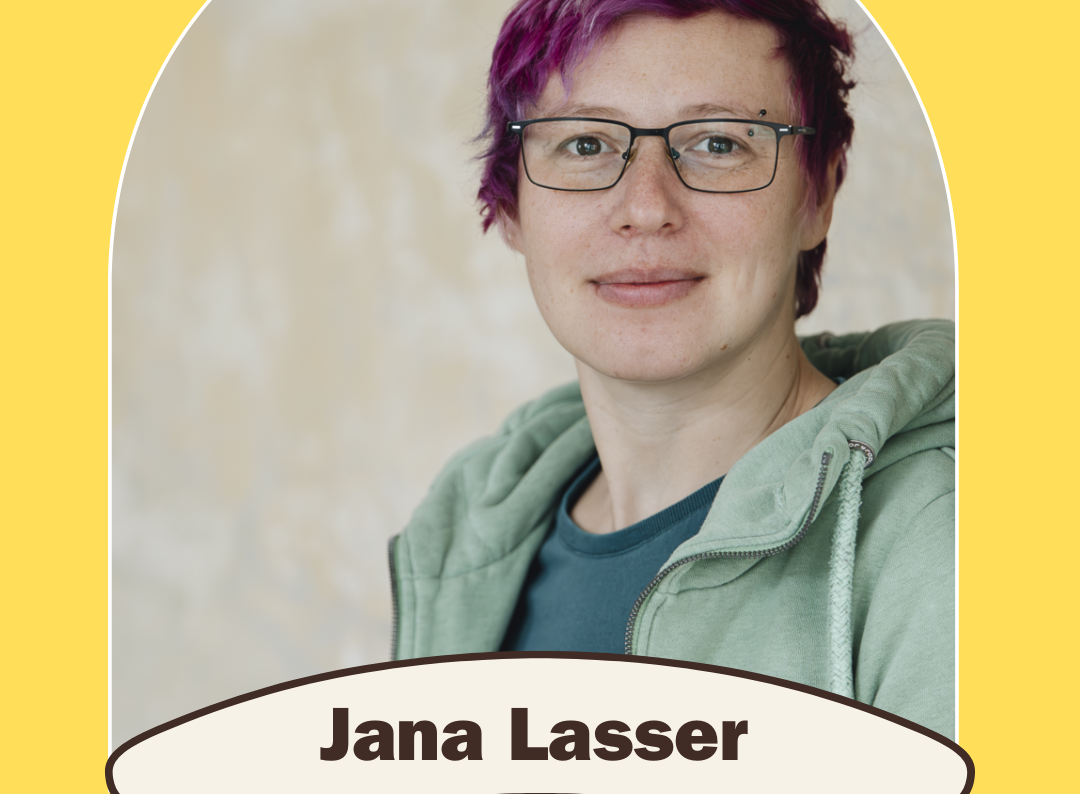The Research Careers Campus Graz showcases people and networks which shape our research environment here in Graz - towards a more collegial, friendly and diverse academia, where all research talents can thrive.
Today, we are proud to showcase Jana Lasser, Professor for Data Analysis, IDea_Lab at the University of Graz, who leads the research group Complex Social & Computational Systems (CS)2.
Here are her three answers to three questions.
1) Which activities for contributing to a positive research environment are most important in your view, and what is your personal contribution to this cause?
I believe it is of utmost importance to give early career researchers as much freedom, security, and respect as possible in the current academic system. There are some boundary conditions that are hard to change in the short term, such as the lack of permanent positions, but there are also many things that people that currently have power in the system (e.g., professors) can do to take steps in that direction. Here are some things I consider contributions to this end:
- I only hire doctoral researchers on fully funded positions. This means four years with the possibility to have a 100% contract. For my university-funded positions this means that after a doctoral researcher finishes, the position needs to stay vacant for a year to compensate for the increased cost (the university by default only funds 75% positions).
- I negotiated hard to create at least one permanent Senior Scientist Position in my lab. This is of course also a huge benefit for my research group as it ensures continuity in the knowledge we build, and helps me build the data and software infrastructures that are the backbone of our research. But this position is also a small step towards more diverse and stable career paths within academia.
- I dedicate time and resources to support early career researchers on their path to independence. This means connecting them with opportunities, helping them write their own grant applications, and giving them the time necessary to develop their own research profiles.
- I try to democratize many processes in the lab. This starts with the choice of the lab's logo and extends to the joint development and evaluation of activities such as reading seminars that we want to have together.
2) What do you personally get out of your engagement for a more collegial academia?
Happy colleagues, many great people that want to join our lab, and better sleep at night :)
3) What helped you the most in your own leadership development, and what would you suggest to others who are starting out on their leadership path?
I took part in quite a number of leadership courses. While not all of them where very useful content-wise, I always used the time I spent there to take a step back and reflect on my leadership practices. Doing this regularly helps me assess whether I am where I want to be regarding my leadership practices and plan any actions I want to take to change things.Next to the time spent reflecting on my own, I also found the possibility to compare notes with people at a similar career stage very useful. The networks I formed with the people in my cohort are a very valuable resource that has stayed with me long after the leadership trainings were finished.
During challenging times such as when I started the research group I also made use of a coach to talk things through. This is something the university offers for people in leadership positions and I can only recommend making use of this ressource.Lastly, I am also a member of the Network Against Power Abuse in Science. Over the last year, I have advised many people in very difficult situations - often caused by people in positions of power in a academia. Hearing about these situations helps me understand how things can go wrong and what not to do. It is often extremely frustrating to hear about the horrible situations that are sadly all too common in an academia without being able to do something about them. However, seeing a wide variety of negative examples also helps to map out what good leadership behaviour would look like. While less local, I also consider my engagement in the network as a contribution to a more positive research environment.
Thanks a lot, Jana Lasser, for giving us this insight, and for the great collaboration always!
Interview: Johanna Stadlbauer, RCC, 19.9.2025
Picture credit: Uni Graz / Communications
